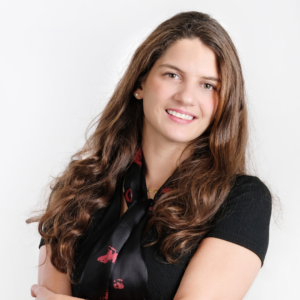
Three researchers innovating in agri-food and cleantech successfully completed Berytech’s six-month Intellectual Property Valorization Program.
The program, launched by Berytech under The ACT Smart Innovation Hub initiative co-funded by the Kingdom of The Netherlands and in partnership with the Euro-Lebanese Centre for Industrial Modernization (ELCIM) at the Industrial Research Institute (IRI), aimed to mobilize academia and research institutions to work on commercializing Lebanese Intellectual Property (IP) for the benefit of different sectors and to advance the knowledge economy.
IP Valorization is one of Berytech’s tools for fostering innovation under the agri-Food and cleantech sectors. The Lebanese ecosystem is challenged by the lack of funding for applied research, lack of IP policies and support as well as weak links between academic research and industrial needs. Berytech has been working since 2017 on developing the Lebanese technology transfer landscape and encouraging the development of research that address market needs turning them into commercial startups and connecting them with industrialists.
The Three Grantees
The grants were given initially to four projects innovating in Energy Efficiency, Nexus between Agri-Food and Renewable Energy, and Nexus between Waste and Agri-Food. Three projects managed to design their value proposition and validate it, size their market and design their MVP allowing them to be selected to continue receiving support through one of the accelerators: Cleanergy and Agrytech.
Hiba Rajha (USJ) – Superpowder: The Powder of Nature
Dr. Hiba Rajha from the Saint Joseph University is focusing her project on recovering polyphenol from agri-food by-products using her newly conceived Ired-Irrad® – a patented infrared (IR) extraction technique. IR technology is based on heating the plant material with IR radiation. Dr. Rajha worked on testing IR radiations as an energy source in the processes of the extraction of bioactive compounds. She is planning on adding polyphenol powder to nuts, chips, biscuits, cereal bars, and chocolate, therefore creating a new product with a high added-value and health beneficial effects.
During the acceleration period, Dr. Rajha determined her value proposition, created a model and conducted a market study of plant extracts in Lebanon. From there, she conducted a more specific market study on the application of plant extracts in the Lebanese cosmetic sector. She was finally able to develop a minimum viable product and is finalizing the analysis for the validation of the product and its safety.
Talal Salem (NDU) – CMU-PCM
Dr. Talal Salem from Notre Dame University is addressing the development of thermal energy storage systems based on sensible and latent energy storage by designing and optimizing a Concrete Masonry Unit (CMUs) that is enhanced with Micro Encapsulated Phase Changing Materials (ME-PCMs).
With the prevailing need to develop new alternatives to reduce the thermal loads in the building sector and to increase the thermal comfort of its occupants and since there exist a great usage of CMUs in the building of exterior façade walls in the MENA construction industry, Dr. Salem’s solution is to develop an enhanced CMU that incorporates ME-PCMs and that offers a better envelope thermal resilience.
During the acceleration period, Dr. Salem identified and pivoted key jobs, pains and gains to formulate the value proposition for the thermally enhanced masonry blocks, and to reiterate the business model proposition. He conducted market validation through in-depth interviews with potential customers and assessed the share of the market.
Malak El Moussaoui (LU) – SolDryTech
Dr. Malak El Moussaoui from the Lebanese University is seeking to improve the food drying process and quality to expand dried food production and export. The system that Dr. El Moussaoui is proposing replaces the traditional sun-drying method with a closed system composed of a drying chamber, blowers, heat pump, solar water collector, photovoltaic panels, and accumulators.
This system avoids the contamination agents and hazards getting into the product during drying, conditions the air used for drying to reduce drying time and improves the quality of the final product by controlling the drying parameters.
During the acceleration period, Dr. El Moussaoui collected data about the number of farmers and cooperatives producing kishk in Lebanon. She determined the sampling number and conducted interviews with farmers and cooperatives in addition to a certain number of municipalities and grinders that mill kishk. After data collection, the responses of interviewees were treated and analyzed to conclude early and later adopters.
The Accelerator Program
The six-month program offered the grantees workshops in value proposition design and validation, market sizing, MVP design, and pitch deck development.
Grant money was used to cover the costs of consulting and research, development and related simulation or prototyping, field testing, and application potentials, all to bring the project closer to market.
The projects founders took part in the first group coaching phase that included market validation and customer discovery support to help them define their target markets, design their business model, adapt their technologies according to the market needs, and plan for the right commercialization strategy.
The three projects received up to $12,000 each to validate their research including market assessment studies, consultancy support, and technical developments for their projects, benefiting from coaching sessions and follow-up to support them in developing their minimum viable product according to the market findings they did. The deliverables have been presented and validated by the IRI and Berytech teams through personal follow-up meetings and calls. The remaining grants from this program will help other startups working in these sectors. Based on the outcomes of the first milestone, the three projects benefited from coaching sessions and follow-up to support them in developing their minimum viable product according to the market findings they did.
Upon the successful completion of the research cycle, the winners were invited to participate in the Validation Phase of Berytech’s Agrytech and Cleanergy Programs. Dr. El Moussaoui and Dr. Rajha will join the Agrytech Program and Dr. Salem will join the Cleanergy Program.
ACT Smart Innovation Hub Initiative
As the name implies, the ACT Smart (Agri-Food & CleanTech) Innovation Hub is a new out-of-the-box approach by Berytech aimed at strengthening business advancement, economic growth, and job creation in the Agri-food and Cleantech sectors in Lebanon. Read more about it here.









